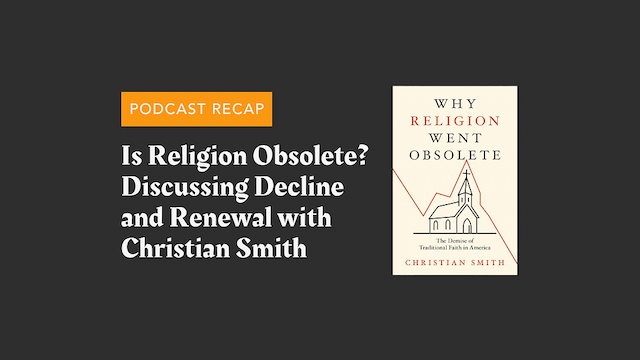Do Christians Want Freedom of Speech?


Faith must reach every area of life, and there is no domain where Christ is not to be Lord. However, the results can be difficult to decipher when faith and public policy meet.
Recently, Elon Musk purchased Twitter, promising to reinstate some of the banned voices the previous owners had deemed too inflammatory for their platform. It raises the subject of the meaning of “freedom of speech” and what it entails. For Christians, this remains a daunting topic, whether we care about Twitter or not.
Legally speaking, t “freedom of speech” has moral and rational limits. You are not free, for example, to yell “Fire!” in a crowded theater and cause a dangerous panic. Beyond that, nearly all other examples can be complicated.
Am I free to bully someone with my speech? Am I free to spew hate-filled, racist remarks with my speech? Am I free to spread misinformation and “fake news” with my speech and endanger the public good?
For Christians, the question is trickier still.
One point of view is that the Christian would prefer a world of free speech where all ideas have a level playing field. By affording free speech to Hindus, Muslims, skeptics, and even anti-Christian bigots, we also protect the continued freedom of the gospel to be preached in the public arena. It can be argued that we have nothing to fear just so long as the playing field is level. The gospel will win out if the game isn’t rigged.
However, this is not the only opinion of Christian thinkers. For example, John MacArthur would argue that Christians do not want free speech, but rather true speech. In Speaking of freedom of religion, MacArthur said:
I don’t even support religious freedom. Religious freedom is what sends people to hell. To say I support religious freedom is to say I support idolatry, it’s to say I support lies, I support hell, I support the kingdom of darkness. You can’t say that. No Christian with half a brain would say, ‘We support religious freedom.’ We support the truth!
I do not wish to misinterpret MacArthur, but it seems that for him it would be absurd to base our laws on anything other than reality. If Christ is truly Lord, then our laws should reflect that. If it is actually immoral to say some things, why shouldn’t it also be illegal?
Doug Wilson takes a similar line of reasoning but to a different conclusion. He favors a form of Christian theonomy – God’s law instituted more or less verbatim as man’s law – but he also recognizes that a secular government cannot regulate blasphemy because it is the biggest blasphemer of all. He writes:
Whenever you give the state power to punish a blasphemer, you are in that moment giving the state the power to blaspheme. And limiting a government’s power to punish blasphemy is limiting a government’s power to blaspheme. And the biggest blasphemy culprits in human history have consistently been these so-called lords of the earth—and not the mental patient who got off his meds and is saying erratic things in aisle 7 at Safeway.
He continues:
What I am arguing for is not a secular libertarian ideal, where any man can blaspheme if he wants to. Rather, in its long war against blaspheming idols, the Christian church started by attacking the biggest blasphemers, the central blasphemers, the blasphemers with the power of coercion.
For Wilson, until we arrive at a “mere Christendom” – a roll out of a theocracy of the sort we do not presently see – we will have to settle for a more limited government in a fallen world, one allowing free speech simply because it does not regulate speech any more than it must. However, Wilson seems to think that in the coming “mere Christendom,” blasphemy and the like would be effectively abolished by the realization of Christian society rather than by overt coercion.
I can understand both of these points of view. As a Christian, a part of me wants the reign of Christ to be honored and codified by law. Put a portrait of Christ in the Oval Office, a cross above the White House, and be done with it. Let the angels of Heaven proclaim, “The kingdom of the world has become the kingdom of our Lord and of his Christ, and he shall reign forever and ever” (Revelation 11:15). The End. Amen.
However, despite that very real impulse within me, I must recognize that this was not the political program found in the New Testament writings.
Jesus encouraged people to pay their taxes to Caesar; since, after all, Caesar’s face was on the denarii, so it must be his (Matthew 22:15-22). Paul commanded obedience to government (Romans 13:1-2) and prayers for government leaders, hoping for no more than a “quiet life” (1 Timothy 2:1-2). Peter says much the same (1 Peter 2:13-15).
In truth, Peter goes a step further and says that for a Christian, it matters less what freedoms we have than how we use those freedoms.
“Live as people who are free, not using your freedom as a cover-up for evil, but living as servants of God. Honor everyone. Love the brotherhood. Fear God. Honor the emperor” (1 Peter 2:16-17).
We might think of this as the Christian moral code for Twitter and Facebook.
In sum, there was no political program in early Christianity to reshape the legal system of Rome into a purely Christian nation except insomuch as the gospel slowly changed all humankind. It may have been so outlandish at that time that no one suggested it.
This assumption overlooks a more important point: governments and Christians accomplish their goals in ways that are ultimately incompatible.
This fact has been apparent in history whenever a government has tried out the “Christian government” ideal. Charlamagne offered his subjects the choice between Christian baptism or death, and few now would argue that this was what Jesus had in mind when he commanded us to make disciples.
Remember that all human laws are an exercise in force and compulsion. When a government says you must pay taxes, the unspoken clause says “or else.”
Pay your taxes or else face the consequences. The first consequence might just be a fine or a tax penalty, but what if you refuse to pay that as well? Then the government will send someone to arrest you for breaking the law. And what if you refuse to be arrested? The government will attempt to use force against you. And what if you try to resist that force? The government will attempt to use still greater force against you. And what if you are willing to resist even if it costs your life? Then you will likely die.
“For he is God’s servant for your good. But if you do wrong, be afraid, for he does not bear the sword in vain. For he is the servant of God, an avenger who carries out God’s wrath on the wrongdoer” (Romans 13:4).
Christianity operates under a different set of rules. Our role model is the man who was crucified, not the powers that crucified him. We are in the business of persuasion and not compulsion (2 Corinthians 5:11).
“For though we walk in the flesh, we are not waging war according to the flesh. For the weapons of our warfare are not flesh but have divine power to destroy strongholds. We destroy arguments and every lofty opinion raised against the knowledge of God and take every thought captive to obey Christ” (2 Corinthians 10:3-5).
While I cringe at blasphemy and many other things I read and see in the public square of words and ideas, I accept the fact that I would accomplish nothing by outlawing them. By compulsion, I could silence them, but it would have done nothing to remove those words from the heart and mind.
The Christian goal is not only to silence the wayward word but to change the soul who spoke it.
For that matter, God could silence blasphemy, turning every word into praise. He even did it once, in the case of Balaam (Numbers 22-24). However, coercion does not normally appear to be the method of God, evidenced by the sheer volume of blasphemy and nonsense uttered in his creation. Why then would he intend us to influence each other differently than he has chosen to guide us in his infinitely wise governance?
I do not know legally how the matter of free speech will play out in the (mis)information age. I know that free speech, in many ways, is a reckless risk and the seed of a great many evils. I know humans have a terrible track record of abusing freedoms rather than using them for God’s glory.
Still, I suspect that protecting free speech is the best course of action because it allows the gospel the greatest freedom possible to do its work. As Christians, our task must be more focused on speaking with graceful persuasion rather than regulating the speech of those not yet persuaded as we.
“Walk in wisdom toward outsiders, making the best use of the time. Let your speech always be gracious, seasoned with salt, so that you may know how you ought to answer each person” (Colossians 4:5-6).
As C.S. Lewis would say, “He who converts his neighbor has performed the most practical Christian-political act of all.” Greater even than regulating a man’s speech is changing what he wants to say.
Dr. Benjamin Williams is the Senior Minister at the Central Church of Christ in Ada, Oklahoma and a regular writer at So We Speak. Check out his books The Faith of John’s Gospel and Why We Stayed or follow him on Twitter, @Benpreachin.











